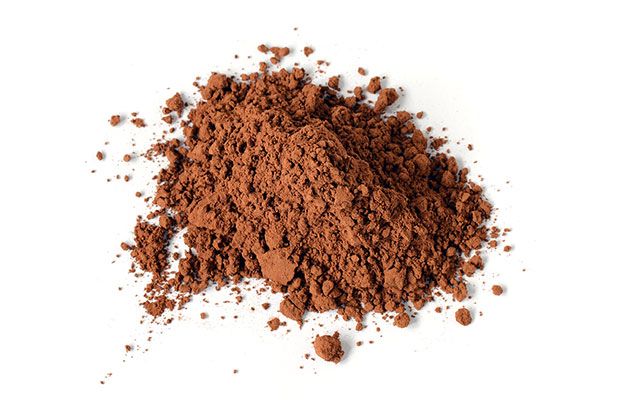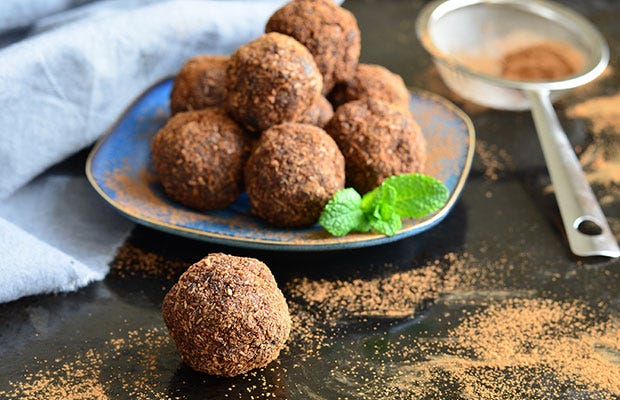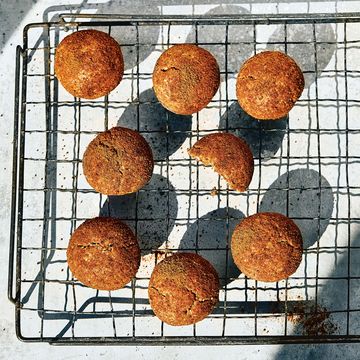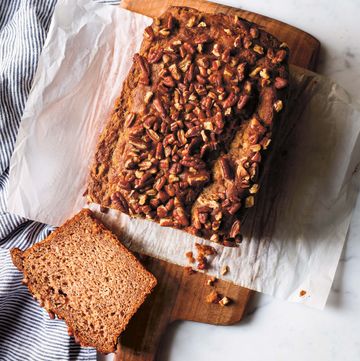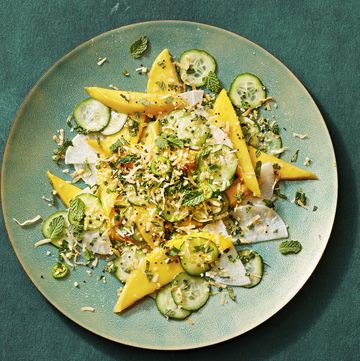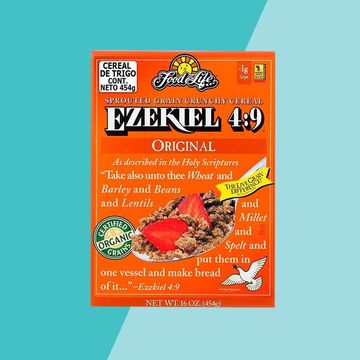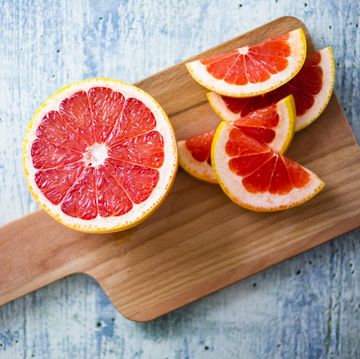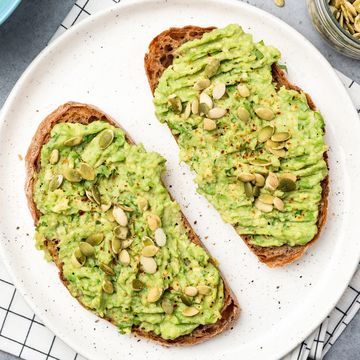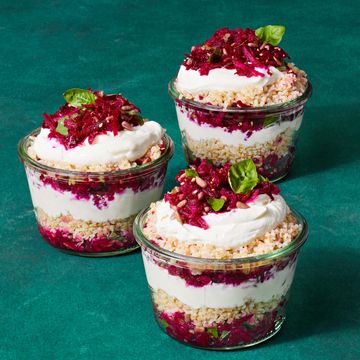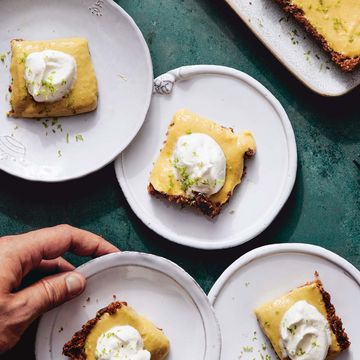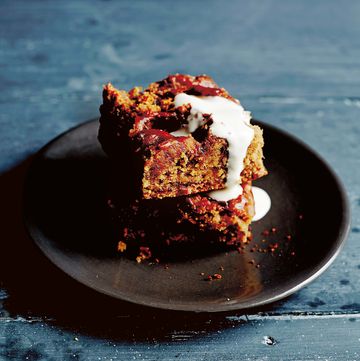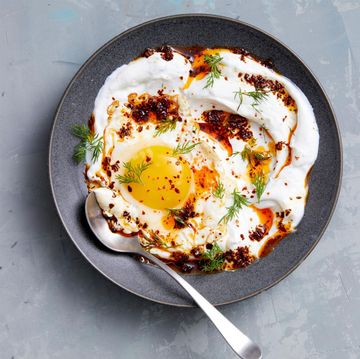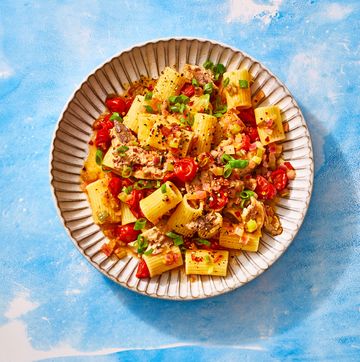As a serious chocolate lover, I've never considered giving up my sweet treat of choice, especially since I know it has health benefits. But recently, I was listening to a podcast where the host was raving about carob—a food she claimed tastes "just like chocolate," but might even be better for you. You may have tried it already, but I immediately felt compelled to investigate. Was I missing out on some crazy awesome health benefits? Could it actually taste—gasp!—better than chocolate? For the sake of chocoholics everywhere, I set off to find out. (Take back control of your eating—and lose weight in the process—with our 21-Day Challenge!)
First, what is carob?
So turns out, carob has been a staple in natural food stores since the '70s. I'm actually ashamed that I didn't know what it was, but in case you're in the same boat: Carob is a brown flour-like powder extracted from the carob bean, native to the Mediterranean countries where it's often used as a substitute for chocolate. It can be sold as a powder and used wherever you'd use cocoa powder; or combined with oils, emulsifiers, and sometimes sugar and to form carob chips, which you can eat straight or use in place of chocolate chips. (If you don't want to replace chocolate, there are 2 good health reasons to keep eating it.)
Whether or not carob actually tastes like chocolate, however, is up for debate—from my recent experience, I'd say it has an earthy, caramel-ish sweetness that almost (but not quite) hits the chocolate spot. Another important thing to keep in mind: Carob contains more natural sugars than cocoa, so you may be able to reduce the amount of added sweeteners you'd normally use in a recipe. Not a bad thing.
MORE: 5 Signs You're Not Getting Enough Vitamin D
The health benefits: carob vs. chocolate
Carob and chocolate are not created equal. For one, carob doesn't contain caffeine and theobromine, two natural chemicals present in chocolate that act as stimulants, says Jessica Levinson, RD, nutritionist at Nutritioulicious. While the average person may not be affected by these chemicals, people who are sensitive to stimulants (i.e. you're the type of person who gets jittery when you eat chocolate or have small amounts of coffee) may find that carob offers similar enough flavor with none of the side effects.
On the other hand, if you're not sensitive to stimulants found in chocolate, the sweet treat's caffeine can be somewhat beneficial, acting as a neuroprotective agent to potentially help reduce the risk of Alzheimer's and other cognitive diseases. As for the chemical theobromine, it widens blood vessels, helping lower blood pressure.
In terms of nutrients, unsweetened carob and cocoa powders have a decent amount of fiber (about 2 g per tablespoon). One drawback to carob, though, is it contains about 3.5 g of sugar per tablespoon, while cocoa has none. But perhaps the most significant disadvantage to carob, says Levinson, is that it has none of the potent flavanol antioxidants that give dark chocolate its heart-healthy reputation—I mean, that's the reason most people justify eating chocolate in the first place!
Bottom line:
Carob is a good pick if you're sensitive to chocolate's stimulants and are careful about its extra sugar, lowering any extra sweeteners you add to baked goods to compensate. (Here are the 9 most popular natural sweeteners.) Otherwise, chocolate wins out in terms of additional health benefits. Regardless of which you choose, keep an eye on how you're eating it: You won't get much benefit from either if you're also downing loads of sugar, bad fats, and calories. Want to give carob a whirl? Try this Carob Coconut Rough Slice from the blog Be Good Organics—loaded with coconut, almonds, and sweetened with dates.

